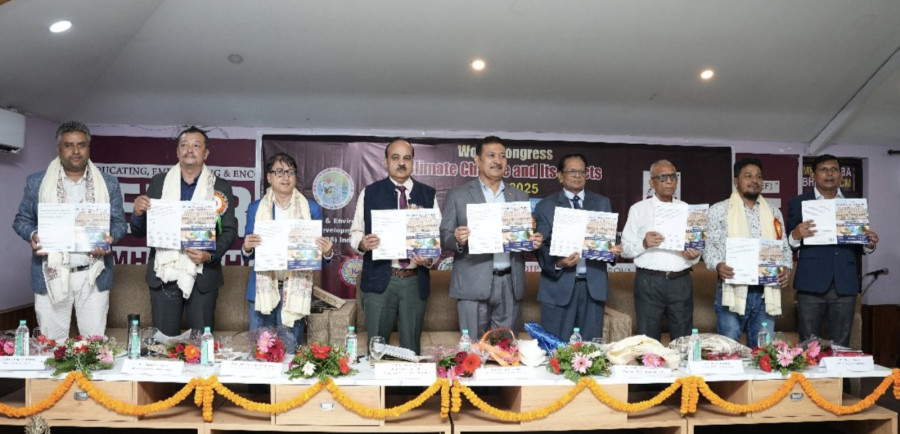Valley
World Climate Change Congress kicks off in Kathmandu
Nearly 800 research papers will be presented at the three-day conference, organisers say.
Post Report
The World Congress on Climate Change and Its Impacts (CCIE-2025) commenced at Central College, Sinamangal, Kathmandu on Saturday.
The three-day event, which was inaugurated by Pokhara University Vice-chancellor Professor Bedraj KC, has drawn the participation of around 200 representatives including experts, scientists, and academicians from 21 countries, according to Central College’s Associate Principal Ganesh Budhathoki.
Dr. Wajid Hassan, programme coordinator from the Agriculture and Environmental Technology Development Society, India informed that nearly 800 research papers will be presented at the conference.
“The programme will feature discussions on nine major themes and over 70 sub-themes,” he said. The topics include climate science, smart agriculture, biodiversity, water security, global warming, carbon emissions, socio-economic resilience, climate forecasting through AI tools, natural resource management, disaster risk reduction, and policy frameworks.
Addressing the inaugural session, Vice-chancellor KC stressed that climate change has global impacts and requires individual-level initiatives for mitigation.
Professor Niranjan Bhattarai, director at Agriculture and Forestry University, pointed out that no single sector alone can solve the crisis, highlighting the need for collective efforts. In the same context, Professor Mahadev Kshetri, vice-chancellor of Samskriti University, India, argued that while climate change is a global challenge, solutions must begin with local initiatives.
As a major highlight, Padma Shri awardee Dr Ram Chet Chaudhary of India delivered a keynote lecture on “Agro-Biodiversity in the Himalayan Terai of Nepal-India: Past, Present, and Future.” He emphasised that biodiversity conservation is the foundation of food security and plays a vital role in climate resilience.
Principal Paras Shrestha of Central College stated that the outcomes of the conference are expected to contribute significantly to forest and environmental conservation, scientific research, policymaking, and sustainable development in society.




 22.6°C Kathmandu
22.6°C Kathmandu













